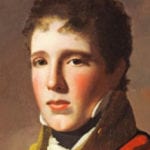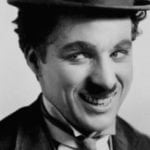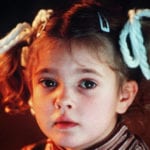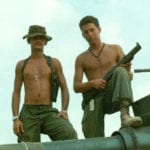 Animals
Animals  Animals
Animals  Movies and TV
Movies and TV 10 Box Office Bombs That We Should Have Predicted in 2025
 History
History 10 Extreme Laws That Tried to Engineer Society
 History
History 10 “Modern” Problems with Surprising Historical Analogs
 Health
Health 10 Everyday Activities That Secretly Alter Consciousness
 History
History Top 10 Historical Disasters Caused by Someone Calling in Sick
 Animals
Animals 10 New Shark Secrets That Recently Dropped
 Movies and TV
Movies and TV 10 Forgotten Realities of Early Live Television Broadcasts
 Technology
Technology 10 Stopgap Technologies That Became Industry Standards
 Weird Stuff
Weird Stuff 10 Wild Facts About Taxidermy That You Probably Didn’t Know
 Animals
Animals The Animal Kingdom’s 10 Greatest Dance Moves
 Movies and TV
Movies and TV 10 Box Office Bombs That We Should Have Predicted in 2025
 History
History 10 Extreme Laws That Tried to Engineer Society
Who's Behind Listverse?

Jamie Frater
Head Editor
Jamie founded Listverse due to an insatiable desire to share fascinating, obscure, and bizarre facts. He has been a guest speaker on numerous national radio and television stations and is a five time published author.
More About Us History
History 10 “Modern” Problems with Surprising Historical Analogs
 Health
Health 10 Everyday Activities That Secretly Alter Consciousness
 History
History Top 10 Historical Disasters Caused by Someone Calling in Sick
 Animals
Animals 10 New Shark Secrets That Recently Dropped
 Movies and TV
Movies and TV 10 Forgotten Realities of Early Live Television Broadcasts
 Technology
Technology 10 Stopgap Technologies That Became Industry Standards
 Weird Stuff
Weird Stuff 10 Wild Facts About Taxidermy That You Probably Didn’t Know
10 Major Stars Who Sang Backup On Hits By Not-so-major Artists
Everyone knows that artists like to pal around on each others’ records. Sting famously injected himself into Dire Straits’ monster hit “Money For Nothing”, David Bowie and Queen smashed themselves together to make “Under Pressure” (or perhaps being under pressure smashed them together), and so on. Every once in a while, however, you’ll hear a song from some forgotten corner of time that might have been a hit once, but that literally no one on Earth (not even the DJ playing it) remembers now. And you’ll think “This song is kinda cool. Hey, that almost sounds like (whatever superstar) singing backup!” And you’ll almost always be wrong.
Almost.
10 Stevie Nicks in “Gold” by John Stewart
A former member of the Kingston Trio and author of such songs as “Daydream Believer” (among many others), Stewart was a music industry veteran who released a ton of albums and wrote a ton of songs for artists like Anne Murray and Joan Baez. As a solo recording artist, he met with only limited success. His only top 10 hit featured a huge assist from a couple members of Fleetwood Mac (one of the biggest bands in the world at the time), including Stevie Nicks’ distinctive harmony vocals.
“Gold” peaked at #5 in 1979.
9 Elton John in “Bad Blood” by Neil Sedaka
John shows up on Sedaka’s decidedly un-Sedaka-like 1975 hit. Known for such saccharine gems as “Breaking Up Is Hard To Do” and “Calendar Girl”, Sedaka’s career took a nosedive in the mid-60’s with the advent of the Beatles and the British Invasion. After over a decade of consistent commercial failure, he enlisted buddy Elton to provide killer counterpoint and harmony vocals to a surprisingly cool song about a really terrible girlfriend.
With a slinky, almost funky (!) groove and lyrics like “the bitch is in her smile”, “Bad Blood” was about as radical a departure as anyone could reasonably expect Neil Sedaka to muster, and it went straight to #1 in 1975.
8 Tom Petty in “Girls” by Dwight Twilley
In 1974, the Dwight Twilley Band signed their first contract with Shelter Records. By 1984, Twilley had been a professional recording artist for ten years, and had scored exactly one top 20 single, “I’m On Fire”, in 1975—and considering his luck, the song may have been written while Twilley was actually on fire. See, one of the only other bands signed to Shelter were fellow unknowns Tom Petty and the Heartbreakers, who would go on to have a teensy bit more success than the Twilley Band, who cashed it in after only two albums.
But Twilley pressed on as a solo artist with zero success. During the recording of his 1984 album Jungle, longtime friend Petty decided it was time for Dwight to get a little recognition, and lent his super-distinctive croon to the chorus of what would become the record’s leadoff single, “Girls”. In addition, two versions of the high-school locker room-themed video were shot, both featuring Petty—one for MTV, and an R-rated version for cable channels like HBO and Playboy. The gambit worked: “Girls” reached #16 on the Billboard Hot 100, and Jungle even cracked the top 40.
7 The Eagles in “Fire Lake” by Bob Seger
Fire Lake is a song that had a hard time coming into existence. Seger began writing it in 1971, but didn’t finish until 1975. Then he planned to record it for his album Beautiful Loser, but didn’t finish that recording until 1980. When “Fire Lake” finally got to us, it was notable only for a couple reasons: it didn’t sound remotely like anything else Seger had done before (he called it “an R&B meets country kind of thing“), and three of the Eagles (Don Henley, Glenn Frey and Timothy B. Schmidt)—at the time an insanely popular band—lent their distinctive harmony vocals to the track.
6 Daryl Hall in “Original Sin” by INXS
Although little-known in the U.S., Inxs’ fourth album The Swing was very successful in their native Australia and remained on the charts for two years. The album was produced by Chic guitarist and all-around badass Nile Rodgers, who had just produced a single called “Adult Education” for American rock/soul duo Hall & Oates. Rodgers called ace vocalist Hall out of the blue to sing backup on the chorus of the lead single, “Original Sin”. While Hall & Oates were cleaning up in the US, the guest spot did little to help sell INXS, and it wasn’t until their next album Listen Like Thieves that they began to take off stateside.
5 Mick Jagger in “Glamour Boys” by Living Colour
While many hard rock fans are familiar with Living Colour, few knew then (or recall now) that Mick Jagger produced two tracks on their breakthrough album Vivid. Similarly, while debut single “Cult Of Personality” is an enduring classic, third single “Glamour Boys”—on which Jagger sang backup- is… not. Which is kind of too bad, because it’s a cool song with a catchy little melody, and—we promise—you can barely hear the Mickster at all.
4 Michael Jackson in “Somebody’s Watching Me” by Rockwell
The son of legendary Motown Records founder Berry Gordy, Rockwell still only managed one top 10 hit—and that, only because the guy singing backup had released the biggest album in the history of music just the year before. With both of those advantages, we think it’s safe to say that you could have had a top 10 hit, and Rockwell went on to do so little that he may have actually undone some of the things he did with his lack of activity. MJ also sang backup on follow up (and top 40) single “Obscene Phone Caller”—which literally no one remembers, despite the fact that Michael Jackson sang on it in 1983. All of this begs the question, why does the Universe hate Rockwell?
3 Bryan Adams in “Don’t Forget Me When I’m Gone” by Glass Tiger
Glass Tiger were a Canadian pop band in the early 80’s whose debut album was produced by Jim Vallance, who wrote some songs with Bryan Adams. So obviously, Vallance enlisted Adams to sing a counterpoint vocal on the lead single, “Don’t Forget Me When I’m Gone”—not a great name for your first single. It was a huge success and got the band some Juno Awards, which is the Canadian equivalent of a Grammy (which we would probably be kind of insulted to win). The band went on to record a few more albums to a response of deafening silence, then disappeared. Which is to say they’re gone, and despite their plea nobody remembers them.
2 Phil Collins in “I Know There’s Something Going On” by Frida
Following the breakup of Swedish pop megaband Abba, female vocalist Anni-Frid Lyngstad (who goes by Frida, because wouldn’t you?) was divorcing from another of that band’s members. So, this being 1982, she was listening to Phil Collins’ “In The Air Tonight” over and over on repeat while crying for about a year. When it came time for her to record a solo record, she enlisted Collins to assist with the production, and he sang backup on the single (and sole hit) “I Know There’s Something Going On”. While the song was a monster worldwide smash, Frida would soon fade into relative obscurity until Abba’s recent Broadway musical-based revival, while Collins would go on to utterly dominate the 80’s as a solo artist and with Genesis.
1 Michael McDonald in “Ride Like The Wind” by Christopher Cross
Adult contemporary vocalist Christopher Cross… um… Crossed over (sorry) to the pop charts several times in the early 80’s, perhaps known best for “Arthur’s Theme (Best That You Can Do)” from the Dudley Moore comedy Arthur. For his debut single from his debut album, he had a little assist from one of the most distinctive voices in all of music- hugely successful R&B singer (and then lead singer of the Doobie Brothers) Michael McDonald. Cross’ debut album won a smattering of Grammys, but he never again flirted with mainstream success. McDonald rode out the 80’s with a string of hits and is still a legend, particularly for his soulful, uplifting “Eyes Of A Child” from the South Park: Bigger, Longer And Uncut soundtrack (seriously, click that link and listen to it, you’ll be glad you did).








